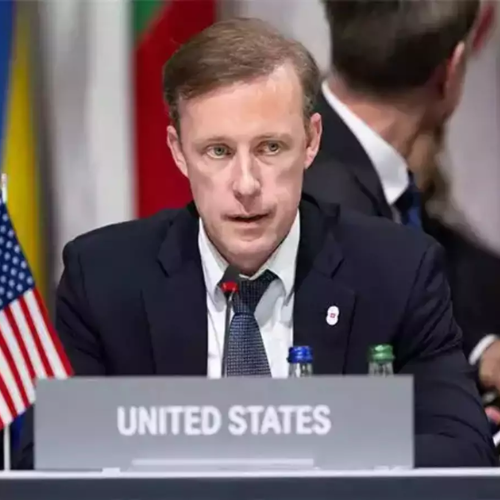The United States has announced a major move toward advancing its civil nuclear partnership with India. On Monday, the US National Security Advisor (NSA) revealed that the country is working to remove Indian companies from a list that prevents them from accessing critical nuclear technology. This step is part of a broader effort to implement the Civil Nuclear Agreement between the two nations, which was signed nearly 20 years ago but remains far from fully realized.
The Civil Nuclear Deal, signed between the two countries’ leaders at the time, was a landmark agreement aimed at fostering peaceful nuclear cooperation. It was meant to provide India with access to advanced nuclear technology, fuel, and reactors for civilian purposes. However, the agreement has faced delays over the years due to technical, legal, and bureaucratic challenges.
One of the key hurdles has been the placement of several Indian companies on a US sanctions list, which restricts them from acquiring certain nuclear-related technologies. These restrictions have prevented these firms from participating fully in civil nuclear projects. Now, efforts are being made to remove these companies from the list, potentially paving the way for smoother collaboration.
Tencent Hit Hard: Shares Slide After US Adds It to Military Blacklist
The US NSA, during his visit to India, acknowledged that while the intent to cooperate has always been strong, significant work is still needed to address the obstacles holding back the partnership. Removing these restrictions is being viewed as a vital step in clearing the path for future progress.
A Critical Step Forward
In his remarks, the NSA shared that the paperwork for removing Indian companies from the sanctions list is in progress. Once completed, this will enable these companies to freely access advanced technologies necessary for civil nuclear cooperation.
This development is seen as part of the US’s broader commitment to strengthening ties with India in critical sectors. By addressing long-standing roadblocks, the US aims to fulfill the promises of the Civil Nuclear Agreement and deepen collaboration in the energy sector.
The NSA emphasized that these measures are not just about resolving technical issues; they are also symbolic of the growing trust and mutual respect between the two nations. Removing these barriers will help India play a more significant role in global clean energy initiatives and will further cement its position as a key US partner.
During his visit, the NSA reiterated that the US is committed to resolving the issues that have hindered progress on the nuclear deal. While the exact timeline for completing the paperwork is unclear, the focus on this issue reflects the importance both nations place on their strategic partnership.
Beyond Nuclear: Strengthening the Partnership
The announcement about lifting restrictions on companies came during the NSA’s speech at a leading Indian institute. He took the opportunity to highlight the broader scope of the US-India partnership, which extends far beyond civil nuclear cooperation.
US Targets Dugin’s Think Tank in Major Sanctions Over Election Interference
In the defense sector, the NSA revealed a significant milestone: India is set to become one of the first foreign manufacturers of Stryker armored vehicles. These vehicles, a key component of the US military’s arsenal, will now be produced in India, marking a major step forward in the defense relationship between the two nations. This collaboration is expected to boost India’s manufacturing capabilities and contribute to its defense industry.
The NSA also spoke about the US-India Initiative on Critical and Emerging Technology, an ambitious program aimed at advancing joint innovation in areas like artificial intelligence, quantum computing, and space exploration. This initiative underscores the growing trust between the two countries and their shared commitment to tackling global challenges through technology and innovation.
The visit marked the NSA’s final overseas trip in his current role, and he used the opportunity to reaffirm the strength of US-India ties. He stressed that the investments both nations are making in their partnership reflect a shared vision for a prosperous and secure future.
By working to remove Indian companies from the sanctions list and strengthening cooperation in areas like defense and technology, the US is signaling its commitment to a deeper, more collaborative relationship with India. These steps reflect a new chapter in a partnership that continues to grow stronger with each passing year.


